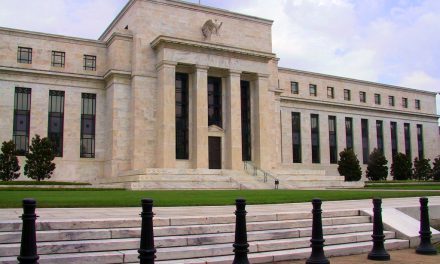Who prepares the NHD?
The seller and listing agent may themselves obtain natural hazard information:
- directly from the public records as do the hired third-party NHD experts; or
- by employing a natural hazard expert.
Gathering and delivering natural hazard information to prospective buyers is the obligation of the seller, a task known to the listing agent who must voluntarily provide advice and assistance to comply with the mandatory disclosure requirements. Critical to the obligation to gather the NHD information, both the seller and the agent are required to exercise ordinary care whether they gather the NHD information themselves or hire an expert to gather the information.
When a third-party expert is hired, he gathers geographic information from the public records and prepares the NHD form for the seller and the listing agent. On receipt, they must review it, add any comments about NHD conditions known to them to be inconsistent or not contained in the report, and sign it for delivery of a copy to all prospective buyers expressing more than an initial interest in the property. All these procedures are to take place before the buyer and seller enter into a purchase agreement. [CC §1103.4(a)]
For the seller and the listing agent to rely on an NHD report prepared by others, the listing agent need only:
- request a NHD report from an expert in natural hazards known to the agent to be reliable, such as an engineer or a geologist who has studied the public records (as some natural hazards clearly do not pertain to engineering or geology) [See first tuesday Form 131];
- review the NHD form prepared by the expert and enter any actual knowledge the seller or listing agent may possess, whether contrary or supplemental to the expert’s report, on the form prepared by the expert or in an addendum attached to the form; and
- sign the NHD provided by the NHD expert and deliver a copy of the NHD report to prospective buyers or their agents who express an interest in the property. [CC §1103.2(f)(2)]
When prepared by an NHD expert, the NHD report must also note whether the listed property is located within:
- two miles of an existing or proposed airport, an environmental hazard zone called an airport influence area or airport referral area [CC §1103.4(c)(1); see first tuesday Form 308 §2];
- one mile of farm or ranch land designated on the current county-level GIS “Important Farmland Map,” issued by the California Department of Conservation, Division of Land Resource Protection [CC §1103.4(c)(3); see first tuesday Form 308 §3]; and
- the jurisdiction of the San Francisco Bay conservation and development commission. [CC §1103.4(c)(2); see first tuesday Form 308 §4]
Use of NHD experts limit broker liability
The NHD scheme does not mandate that sellers and brokers use third-party experts to prepare the NHD report. However, the scheme does use strong language with much incentive to encourage brokers and their agents to use natural hazard experts, rather than obtain the information from the local planning department themselves.
Consider a seller and listing agent who decide to hire an NHD expert to prepare an NHD. Neither the agent nor the sellers are aware the property has been designated as located in a fire hazard area. The listing agent asks his colleagues for references and locates an expert who is known to him to be competent. The NHD expert reviews the public records and prepares and signs a NHD for the seller which fails to mention the fact the property is located in a fire hazard zone. The listing agent and seller review the NHD prepared by the expert and determine it conforms to their knowledge.
The seller signs the NHD and hands it to all prospective buyers who express a serious interest in the property.
A prospective buyer who reviewed the NHD prior to entering into a purchase agreement acquires the property. Later, the property is subjected to a wild fire. It is then that the buyer discovers the property is located within a fire hazard zone. The buyer makes a demand on both the seller and the listing agent for the reduced value of the property due to its location in a fire hazard zone since this condition of the property’s location wasn’t disclosed.
Here, the use of an expert to prepare the NHD report that was delivered to the buyer and acknowledged before agreeing to purchase the property fully relieves the seller, the listing agent and the listing agent’s broker of any liability for errors since the conditions were not actually known by the seller or agent to exist. [See first tuesday Form 131]
Neither the seller nor any agent, be they the seller’s or the buyer’s agent, is liable for the erroneous preparation of an NHD delivered to the buyer before going under contract, if:
- the NHD report and form is prepared by an expert in natural hazards, consistent with his professional licensing and expertise; and
- the seller and listing agent used ordinary care in selecting the expert and in their review of the expert’s report for any errors, inaccuracies and omissions of which they have actual knowledge. [CC §§1103.4(a), 1103.4(b)]
Neither the seller nor the listing agent need enter into an indemnification agreement with the natural hazard expert to avoid liability for errors. The expert who prepared the NHD is statutorily liable for his errors, not the seller or listing agent who relied on the report of a non-negligently selected expert to fulfill their duty to check the public records.
However, if brokers are sued based on errors in the expert’s report, an indemnity agreement entered into by the expert, given in exchange for the request to prepare a natural hazard report, will cover the cost of any litigation which might unnecessarily haul the broker into court and not be covered by the broker’s errors and omissions policy. [See first tuesday Form 131]
The listing agent’s dilatory delivery of an expert’s NHD to a buyer or the buyer’s agent, after the offer has been accepted, will not protect the broker from liability for the buyer’s lost property value due to the nondisclosure of NHD conditions known to the seller, broker or agent before acceptance and formation of a contract with the seller.
If the agent knew or should have known of a natural hazard based on the readily available planning department’s parcel list prior to the acceptance of the buyer’s offer, he is exposed to liability. Liability exposure includes:
- costs the buyer may incur to correct or remedy the undisclosed hazardous condition; and
- the portion of the agreed price which exceeds the property’s fair market value (FMV) based on the undisclosed hazard. [CC §1103.13]
Further, the agents, seller and expert are not exposed to liability from third-parties who might receive an erroneous NHD and rely on it to analyze the risk they undertake by their involvement. Such third-parties include insurance companies, lenders, governmental agencies and others who may become affiliated as providers during the transaction. [CC §1103.2(g)]
Further, delivery of the NHD after acceptance of an offer, when it could have been previously prepared and delivered to the buyer, imposes liability on the seller and listing agent, but not the buyer’s agent. Liability is based on any money losses (including a reduced property value) inflicted on the buyer by the dilatory communication of hazardous conditions should the buyer choose not to exercise his right to cancel and, instead, proceed with the agreement and close escrow in spite of efforts by the listing agent to induce a cancellation of the purchase agreement and escrow. [CC §1103.13; Jue, supra]















Is it okay to use a “residential” report for a multifamily property of more than 4 units?
Does the Buyer’s Agent have to sign the NHD signature page? This is always a debate among TCs. It says the transferor and transferor’s agent but because there are two lines for agent signatures many assume both listing and selling agent must sign. I would like clarification.
Mary,
Thank you for your inquiry! The Natural Hazard Disclosure [RPI Form 314] does not need to be signed by the buyer’s agent. Only the seller’s agent needs to sign.
Regards,
ft Editorial
Why doesn’t the buyer’s agent have to acknowledge receipt of the information when the buyer must do so? I just do not comprehend this one iota. What is the point of two signature agent lines? The large firms insist that their agents DO NOT SIGN THE FORM. Why, what kind of protection does this imply to their team agents? It smells bad to me. I would love a CAR attorney to answer this question. Thank you.
Sheila,
Thank you for your inquiry. We are not associated with CAR or any CAR attorneys.
However, California Civil Code section 1103.2(g) indicates the Natural Hazard Disclosure “is only a disclosure between the transferor, the transferor’s agents, and the transferee, and shall not be used by any other party”. Thus, the buyer’s agent is not required to sign the disclosure. Also, since the code states “transferor’s agents” plural, the disclosure needs to allow for the possibility of multiple seller’s agents representing the seller.
Regards,
ft Editorial